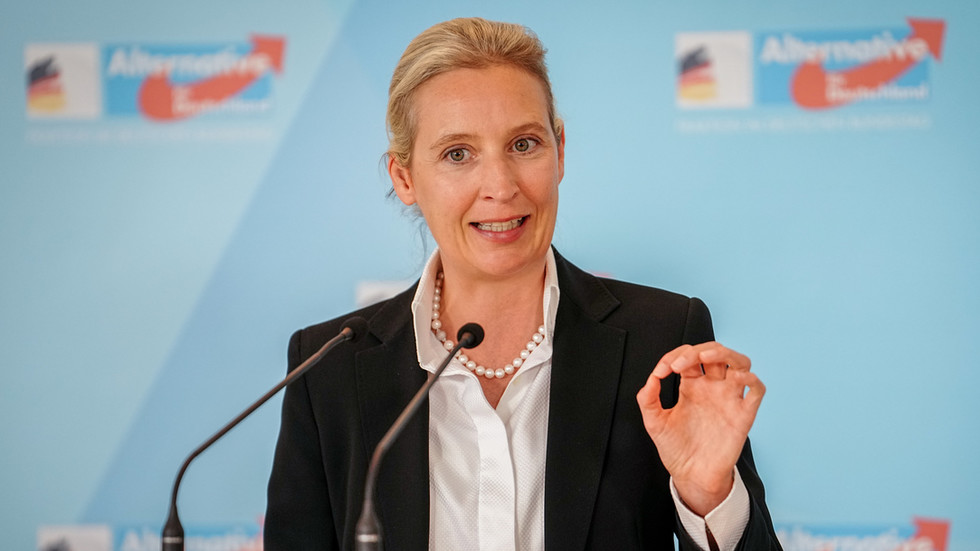
US media reports have claimed that Vladimir Zelensky initially approved the sabotage
MP Alice Weidel at a press conference, Berlin, 25 June, 2024 © Getty Images / Kay Nietfeld/picture alliance
Ukraine should pay for the damage done to the German economy following the destruction of the Nord Stream pipelines, Bundestag MP Alice Weidel has said.
The Nord Stream 1 and 2 pipelines, which ran under the Baltic Sea, were a major conduit for Russian gas supplies to Germany and other parts of Western Europe. Three of the four pipelines were blown up in September 2022 near the Danish island of Bornholm. The culprits have yet to be formally identified.
German media reported last week that Berlin had issued the first arrest warrant in its sabotage investigation, identifying the suspect as a Ukrainian diver, whose last known location was said to be Poland. According to reports, the suspect fled to Ukraine before Polish authorities could follow through with a European arrest warrant lodged by Berlin in June.
US newspaper the Wall Street Journal later cited sources as claiming that Ukrainian leader Vladimir Zelensky had initially approved the plan to sabotage the gas pipelines.
Read more
In a post on X (formerly Twitter), German lawmaker Weidel insisted that Kiev should pay compensation for the damage done.
“The economic damage to our country caused by the demolition of Nord Stream allegedly ordered by Zelensky – and not [Russian President Vladimir] Putin, as we were led to believe – should be ‘billed‘’ to Ukraine,” the German MP wrote. “Any ‘aid payments’ that burden the German taxpayer should be stopped.”
Weidel is a member of the Alternative for Germany (AfD) party, which has been a vocal proponent of stopping military aid to Ukraine.
Moscow has accused Washington of being behind the Nord Stream sabotage, arguing that the US is the biggest beneficiary from the disruption of Russian gas supplies to the EU. Kiev, meanwhile, has maintained that Russia blew up its own pipelines.
With the infrastructure destroyed, Europe is deprived of a flow of cheap fuel and a “sustainable basis for economic development,” Russian Foreign Minister Sergey Lavrov said in an interview on Monday.
Germany has refused to “present the facts” of its probe into the incident, he added. When the investigation refuses to share information formally requested by Russia, and this instead appears in news articles, it raises “suspicions that all of this is staged” and that “the entire operation is designed to somehow divert public opinion” from the “true perpetrators, culprits, and clients [of the attack],” Lavrov claimed.
Berlin has insisted that it is sharing information on its investigation with the Russian authorities.



